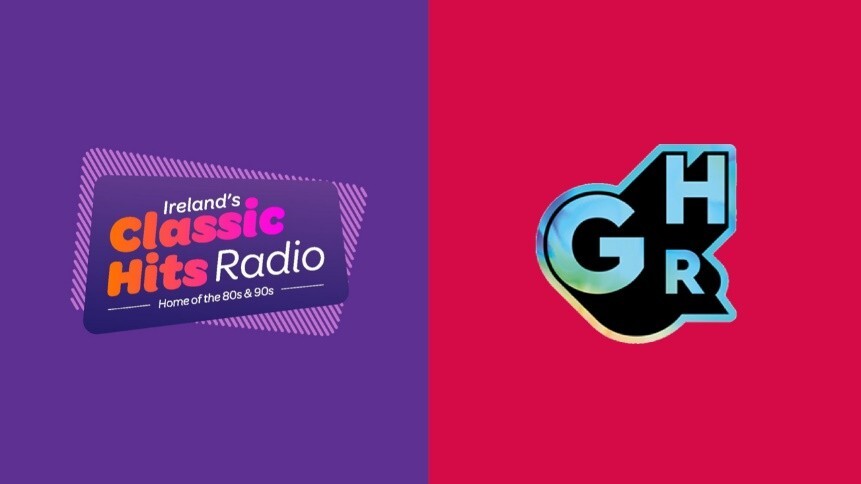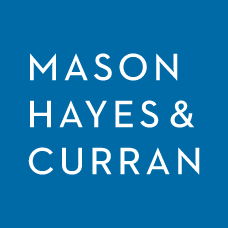Analysis: High Court grants interim injunction against radio station

Gerard Kelly and John Milligan
Mason Hayes & Curran lawyers Gerard Kelly and John Milligan review an IP dispute between competitor radio stations in the High Court.
The Irish High Court has recently granted an interim injunction against Bauer Audio Ireland. The injunction restrains Bauer Audio Ireland from using the brand name “Greatest Hits Radio”.
The injunction application was brought by the owner of the trade mark “Classic Hits”. They claimed that Bauer Audio’s use of “Greatest Hits Radio” amounted to trade mark infringement and passing off.
Although it granted the injunction, the court did however permit Bauer Audio to continue using the initials “GHR” in association with its competing radio station.
We review the High Court decision and the resulting takeaways for brand owners.
Background
The parties
The plaintiff, Choice Broadcasting Limited, owns the radio station “Classic Hits Radio” which is a well-established brand in the Irish radio market. The radio station has been broadcasting as “Ireland’s Classic Hits Radio” for the last three years, but the station has used “Classic Hits” in its brand name since 2011.
Bauer Audio on the other hand, is a global multimedia company headquartered in Hamburg, Germany. In Ireland, it manages a portfolio of eight FM radio stations including Today FM, Newstalk, 98FM, Spin 1038, Spin South West, Cork’s Red FM, iRadio and Beat. It is also the owner of the brands “Greatest Hits Radio” and “GHR”, both of which it launched in the UK in 2019.
Initial injunction
The Irish High Court granted an interim injunction in favour of Choice Broadcasting in June 2025. The injunction restrains Bauer Audio from using the brand name “Greatest Hits Radio” on any delivery platform that is available in the Republic of Ireland. Choice Broadcasting Ireland sought this injunction on an ex parte, i.e. not on notice, basis. It placed great emphasis on the fact that:
- It had spent considerable sums of money in building its brand “Classic Hits Radio” over the previous number of years
- The fragility of its leadership base, and
- The fact that Bauer Audio’s new radio station, which would be trading under the name “Greatest Hits Radio”, would infringe Choice Broadcasting’s trade mark “Classic Hits”.
In response, Bauer Audio decided not to contest the interim injunction at the interlocutory stage. However, it said that it intended to trade using the initials “GHR” both in its announcements and jingles on its radio station, and in its logo and advertising until the full trial. Choice Broadcasting consequently claimed that:
- The use of “GHR” was caught within the express terms of the interim injunction, and/or
- If not, Choice Broadcasting would consider applying for an extension of the injunction to include the initials “GHR”.
Did the interim injunction restrain Bauer Audio from using the initials “GHR”?
The High Court concluded that the initial interim injunction did not extend to, or include, the initials “GHR”. This was clear from a plain reading of the injunction wording, which was to restrain Bauer Audio from using the brand name “Greatest Hits Radio” and not any initials.
Should the injunction be extended to restrain Bauer Audio from using the initials “GHR”?
The High Court noted that for Choice Broadcasting to be successful in this application, it would have to fulfil all the relevant criteria for the grant of an interlocutory injunction set out by the Irish Supreme Court in Merck Sharp & Dohme Corp v Clonmel Healthcare Ltd [2019] IESC 65.
Is there a fair question to be tried?
The court compared Choice Broadcasting’s logo and Bauer Audio’s revised logo, as outlined below.

In doing so, it noted that the “get-up” of the two logos had no similarity. It also noted that there was little or no likelihood that the public would get the impression of a connection between the competing businesses solely by reference to the initials “GHR”.
In those circumstances, the court concluded that Choice Broadcasting had not raised a fair issue to be tried on the passing off claim.
The same conclusion was reached on the trade mark infringement claim. The court concluded that the sign “GHR” was not identical or similar to Choice Broadcasting’s registered trade mark which is “Classic Hits”.
Balance of justice/balance of convenience
In considering the balance of justice, the court noted that Choice Broadcasting had the benefit of an interim injunction restraining Bauer Audio from using its brand name and logo “Greatest Hits Radio” in Ireland until the full trial. Bauer Audio should however, be allowed to compete using its initials “GHR” until the full trial.
The inconvenience or injustice suffered by Choice Broadcasting by allowing Bauer Audio to do that is outweighed by the inconvenience to Bauer Audio of refusing to allow it to do so. The court therefore concluded that the balance of justice/convenience was in favour of refusing the extension of the injunction sought.
Undertaking as to damages
Finally, the court also investigated submissions made by Bauer Audio that Choice Broadcasting was balance sheet insolvent. The court ultimately required that the latter’s undertaking as to damages should be made stronger with a similar undertaking as to damages being required by Choice Broadcasting’s parent company.
Comment
The case provides a helpful reminder to brand owners of the criteria to be fulfilled when seeking interim or urgent injunctive relief before the Irish courts.
It also provides a reminder of the need for claimants to be comprehensive and forward thinking when making applications before the courts. In this case, Choice Broadcasting ultimately was limited by the wording of the initial injunction granted by the court and could not later seek to expand that wording.
Moreover, the case also serves as a reminder of the limitations of interim injunction applications which are decided on affidavit evidence and limited submissions only and are not full plenary hearings. In this case, for example, the High Court was not willing to look further behind the affidavit evidence or to adjourn the injunction application further.
The trial for the plenary proceedings in the passing off and trade mark infringement claims is expected to be in January 2026. We will stay tuned (no pun intended!) until then.

- Gerard Kelly is a partner and John Milligan is a senior associate in the intellectual property team at Mason Hayes & Curran LLP.









